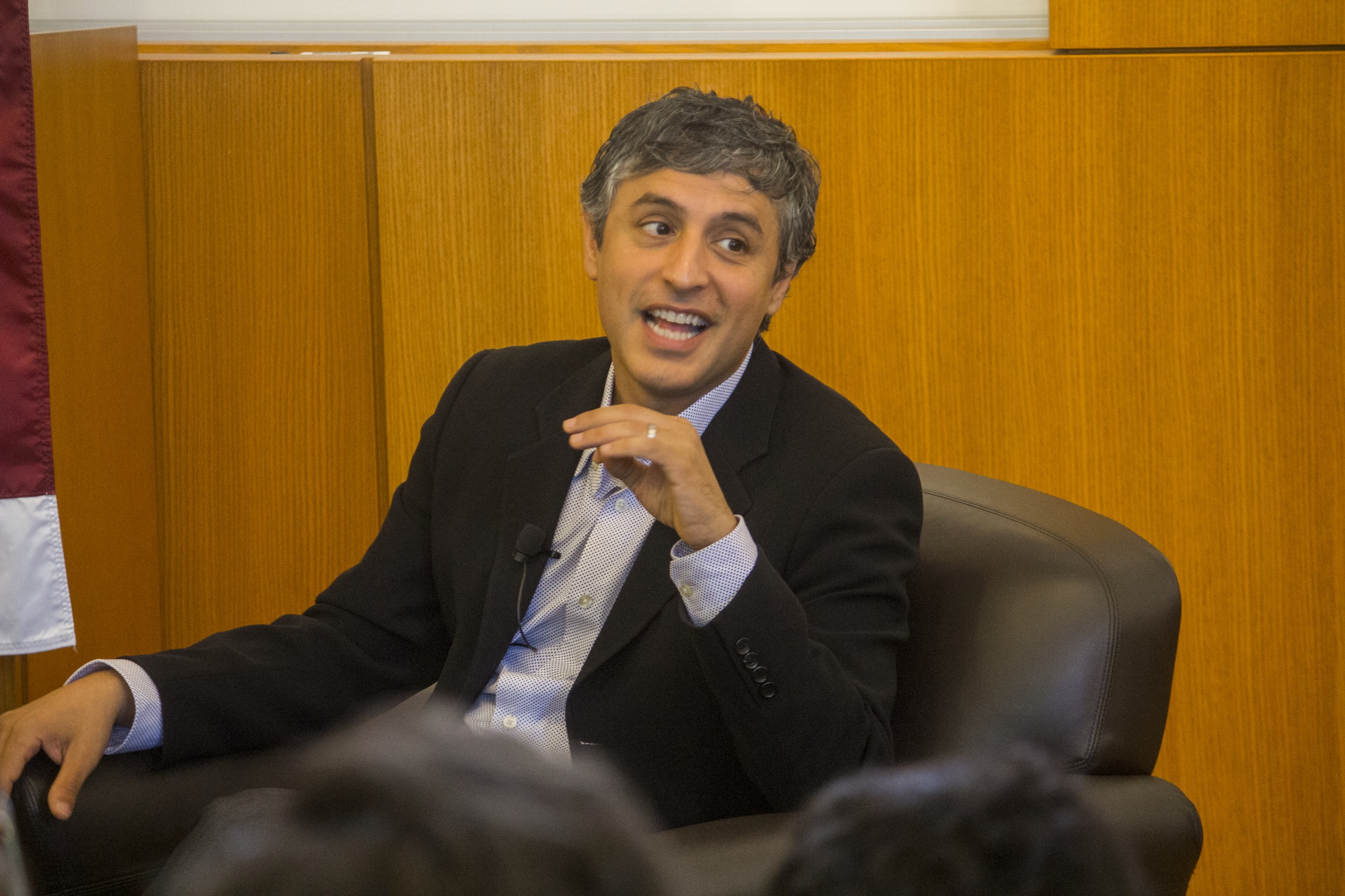
News
Summers Will Not Finish Semester of Teaching as Harvard Investigates Epstein Ties

News
Harvard College Students Report Favoring Divestment from Israel in HUA Survey

News
‘He Should Resign’: Harvard Undergrads Take Hard Line Against Summers Over Epstein Scandal

News
Harvard To Launch New Investigation Into Epstein’s Ties to Summers, Other University Affiliates

News
Harvard Students To Vote on Divestment From Israel in Inaugural HUA Election Survey
Reza Aslan Addresses Interview Controversy, New Book

Reza Aslan, whose interview on Fox News about his book “Zealot: The Life and Times of Jesus of Nazareth” attracted national attention, told a packed auditorium Thursday afternoon that controversies like his treatment during the Fox interview provoke positive discussions about religious biases in the media.
In the now infamous interview, Lauren S. Green, a Fox News religion correspondent, repeatedly asked Aslan why he would write a book about Jesus given his Muslim faith. Aslan said the interview represents the inability of many in society to understand the difference between religious scholarship and personal beliefs.
At the Harvard Divinity School event, Aslan said that readers have reacted to his work with praise, criticism, and most often, confusion. Americans find it hard to comprehend studying religion from an academic standpoint, according to Aslan, and he and his colleagues should try to make scholarship more accessible.
Alsan’s attempt to reach a broader audience has led some scholars to criticize his work as simplistic, Aslan said. But, he said, simplicity was his intent.
The research and the sources Aslan utilized are not themselves purely original, he acknowledged. Instead, it is his approachable style of writing—a testament to his work as a professor of creative writing—that makes “Zealot” unique. In the book, for example, the body of the text is separated from notes that reveal the methodology behind his scholarship.
Discussing “Zealot,” Aslan primarily focused on Jesus as an historical figure rather than a divine being. For Aslan, pursuing Jesus as a man enables “[Jesus] to become more real...more interesting…more appealing.”
Rather than factual accounts, Aslan said, the Gospels are theological arguments intent on revealing transcendent truth. In “Zealot,” though, Aslan seeks to present an account of an historical Jesus who was dissentient and bold enough to receive the special Roman punishment of crucifixion.
Audience members said they understood the significance of Jesus as not just a religious figure but a man. “What’s really important about Jesus is the paradoxical nature of him, fully divine and fully human,” commented Derek C. M. van Bever, a lecturer at Harvard Business School and a graduate of the Divinity School.
Aslan, who graduated from the Divinity School in 1999 with a Master of Theological Studies, spoke with enthusiasm about becoming interested in studying religion.
“The power religion has to shape a society for good or for bad is something I’ve never been able to shake,” he said.
Want to keep up with breaking news? Subscribe to our email newsletter.
